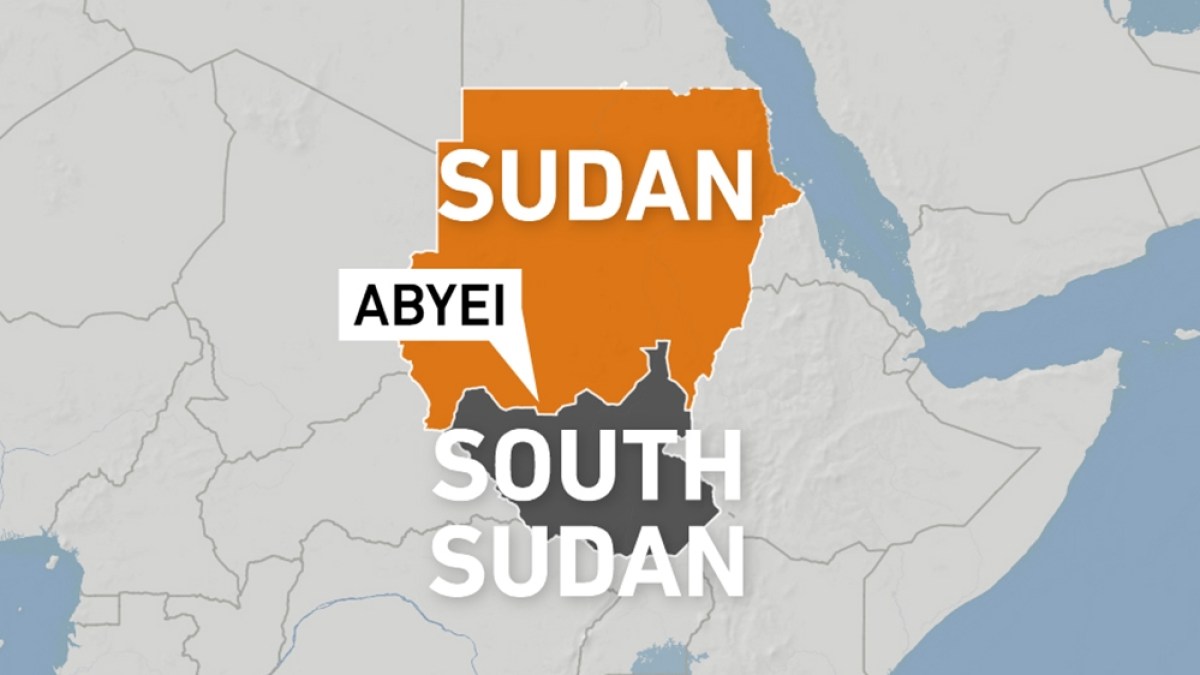“We voluntarily destroy our weapons … as a step of goodwill and determination,” said senior Kurdistan Workers’ Party (PKK) leader Bese Hozat, speaking in front of a gathering of the group’s fighters.
The footage, filmed last Friday in the northern Iraqi city of Sulaimaniyah, then shows the fighters – about 30 of them – placing their weapons inside a cauldron, where they were set alight.
The ceremony may have been symbolic, but it capped what might be one of the most consequential periods in Turkiye’s recent political history. It wraps up a carefully planned sequence of gestures and messages, and shows that both sides are not just coordinating symbolically, but are also politically aligned in their intent to move from armed conflict to political dialogue.
The choreography of the build-up to the ceremony unfolded with remarkable precision, revealing both political coordination and calculated restraint. Such an alignment would have been impossible without mutual recognition between the PKK and Turkiye of the importance of what was about to happen, as well as the consequences of any failure.
On July 7, Turkish President Recep Tayyip Erdogan received his country’s pro-Kurdish DEM Party delegation for the second time in four months. A smiling group photo from the meeting was widely circulated, signalling both the normalisation of dialogue and the symbolic approval of the process at the highest level.
Two days later, on July 9, Abdullah Ocalan – the imprisoned PKK leader and founder – appeared in a seven-minute video released by ANF, the PKK’s affiliated media outlet. It marked his first public visual appearance in 26 years and carried a simple but historic message: The time for arms has ended.
In it, Ocalan emphasised that the movement’s original aim, the recognition of Kurdish identity, had been achieved, and that political engagement must now replace armed resistance. The message was as much to the PKK as it was to the public.
Lastly, on July 13, Erdogan addressed the governing AK Party’s retreat, reaffirming his commitment to the disarmament process and announcing that a parliamentary commission would be established to address its legal framework. His message aimed to reassure the broader public, especially his supporters, that the process would strengthen national untiy and benefits all of Turkiye’s citizens, whatever their ethnicity.
Message to the Kurdish public
Ocalan’s rare video message aimed to reassure his Kurdish supporters that this was not a defeat, but a recalibration: a shift from armed struggle to political engagement. The message was carefully measured and stripped of triumphalism; it sought to redefine the past, rather than glorify it.
The dignified tone of the weapons-burning ceremony allowed both the PKK and state narratives to coexist. It did not alienate those who had sacrificed for the PKK’s struggle – activists, politicians in prison or exile, and the families of the disappeared. Instead, it signalled that their voices had been heard.
Despite his years of isolation, Ocalan’s words still carry weight. Not only because of his symbolic authority, but because his message reflects what many Kurds now seek: dignity without martyrdom, a voice without violence, and a future beyond armed struggle.
Public support for disarmament is growing, even among those long sceptical of the state’s intent. Recent surveys show that more than 90 percent of DEM voters, as well as those who identify as Kurdish or Zaza (a Kurdish-adjacent minority group) in Turkiye, support the process. Belief that the PKK will fully disarm is also significantly higher than the national average.
The PKK’s decision to disarm is not a retreat but a recalibration.
Since its founding in 1978, the group has waged a protracted armed struggle against the Turkish state, demanding autonomy and rights for Kurds. But after decades of rebellion, the regional landscape has changed.
In northern Iraq and Syria, the PKK’s operational space has altered. While the Syrian Democratic Forces (SDF), a key PKK-linked actor, remains active in northeastern Syria, its future hinges on shifting US commitments and delicate understandings with the new government in Damascus, an ally of Turkiye.
At the same time, Iran’s weakening regional influence, sustained Turkish military pressure, and a quiet but growing preference among Western actors for a stable Turkiye have all contributed to reshaping the group’s strategic calculus.
Crucially, this recalibration does not conflict with the United States and Israel’s core interests in curbing Iranian influence and maintaining a manageable status quo in Syria.
Against this backdrop, a disarmed and politically engaged Kurdish movement in Turkiye is not an isolated anomaly. In this context, the PKK has opted to step off the battlefield and into the political arena. As Ocalan expressed in his July 9 message, “I believe in the strength of peace, not the force of arms.”
The weapons-burning ceremony is not the end of the disarmament process. A Turkish parliamentary commission is expected to define the conditions for the reintegration of PKK fighters into civilian and political life in Turkiye, while a verification mechanism involving the Turkish Armed Forces and intelligence agency will monitor disarmament and issue a report to guide further steps.
Hozat, the PKK senior leader, framed the ceremony as a political milestone, and reaffirmed the group’s ambition to enter civilian politics, expressing an aim to become “pioneers of democratic politics in Amed [Diyarbakir], Ankara, and Istanbul” – a deliberate reference to key centres of Kurdish representation in Turkiye and national political power.
Yet this transition hinges on comprehensive legal reforms and credible guarantees that are both socially and politically viable, and civil society groups and humanitarian organisations in Turkiye are likely to play an active role in the forthcoming stages of full disarmament.
Turkish political support
In Turkiye, there is broad buy-in for the peace process with the PKK from across the political spectrum.
This is largely because the process benefits nearly all political actors by reducing the securitised political climate, easing judicial pressure, and offering a chance to reset deeply polarised governance.
With “terrorism” charges having been used expansively in recent years, even members of the opposition Republican People’s Party (CHP) have found themselves entangled in legal problems. In this context, a de-escalation appeals to many, including party leaders such as Ozgur Ozel and Ekrem Imamoglu, even if many remain wary of the AK Party’s intentions. For many CHP supporters, what they view as the contradiction of a reconciliation effort with the PKK unfolding alongside a clampdown on opposition mayors is hard to ignore.
Other Turkish parties have been supportive, despite coming from different political traditions. The DEM Party has, of course, been a central part of the negotiations and the messaging that a page has been turned on the past.
It is notable that the group that the Nationalist Movement Party (MHP) – perhaps the Turkish political party most opposed to the DEM Party and long a staunch opponent of any rapprochement with Kurdish nationalist groups – has also publicly backed the process, and indeed has also been heavily involved in the choreography in the past few months.
Its leader, Devlet Bahceli, has been front and centre in the process, formally inviting Ocalan to dissolve the PKK and reaching out to DEM members of parliament. His pragmatic stance has stemmed from his belief that the end of the PKK’s armed campaign aligns with national interests. In fact, delays in the process were ultimately overcome with the aid of the MHP leader.
And the AK Party has steered the peace process through some of its central figures, including Efkan Ala, a former interior minister and one of Erdogan’s most-trusted political allies. Erdogan has personally taken on the task of normalising the discourse of making peace with the PKK.
Still, not everyone in the party may be on board. Years of conflict with the PKK and attacks from the group, securitised rhetoric, the criminalisation of DEM-aligned actors, and the stigma surrounding any cooperation with the DEM Party have left deep internal reservations. Stepping away from that position is not easy, even if Erdogan has set a clear tone, signalling firm commitment from the very top of the Turkish establishment.
Potential pitfalls
This is not a conventional peace process, nor is it a one-sided act of capitulation.
Rather, it marks a convergence – tenuous, complex, and partial – between two longstanding adversaries.
Spoilers exist – within the state, among political factions, and across the border – but so far, none has derailed the process.
But those tied to the war economy, ideological hardliners, or actors who thrive in a securitised climate might yet try, even if the process has already weathered a lot of potential pitfalls, including the Turkish military bombing PKK positions in March and regional turbulence in the form of the war between Israel and Iran.
However, that does not mean that no future problems could arise. What lies ahead may be even harder. Without meaningful political reforms or guarantees, the space opened up by disarmament may quickly narrow again.
On the Kurdish political side, many questions also still remain.
DEM Co-Chair Tuncer Bakirhan, speaking in an interview with the Kurdish media outlet Rudaw last Wednesday, emphasised that symbolic gestures must be followed by institutional action.
“We have submitted our proposals to the speaker of parliament,” he noted, including mechanisms for reintegrating former militants into political and civilian life. “We don’t need to dwell on the details — those will follow. But there must be clarity: What happens to those who disarm? Where do they go? What protections will they have? These are not trivialities; they are the foundation of a credible peace.”
He is right to point out that disarmament alone is not enough; it is merely the starting point. The real question is what comes next.
What will happen to those imprisoned on “terror” charges, whether for political reasons or past involvement in armed struggle?
What about the fighters still in the mountains, the families stranded and the political figures exiled in Iraq, Europe or elsewhere? And what about the broader ecosystem: civil society actors, journalists, and others long caught in the grey zones of criminalisation?
For the PKK’s disarmament to reach this point, the right domestic and geopolitical conditions had to align, and today, they have.
Weapons will be burned, and the armed chapter, potentially including the Syrian front, as hinted by ongoing but difficult negotiations between the SDF and Damascus, will come to a close within Turkiye’s borders. But from this point on, representative politics, diplomacy, and public deliberation will matter more than ever.
It marks a historic threshold. What follows will depend not on symbols, but on substance: on the courage to legislate, to decentralise power, and to trust society’s readiness for coexistence.
No one can fully predict how the region will evolve, and most actors are likely preparing for multiple scenarios, not a single roadmap.
The long-term impact of this move remains unclear and perhaps deliberately so.

 3 months ago
125
3 months ago
125

















































